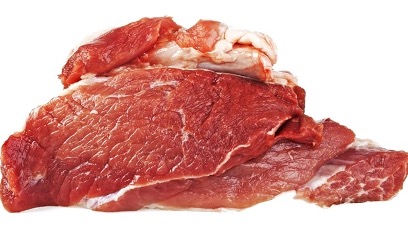Study reveals high levels of antibiotic resistance in meat sold for consumption
April 30, 2024
Source: drugdu
 282
282

New research presented at the ESCMID Global Congress (formerly ECCMID) in Barcelona, Spain (27-30 April) has found substantial levels of resistance to critically important antibiotics in meat sold for human and animal consumption. The study is by Dr Jordan Sealey, Professor Matthew Avison and colleagues from the University of Bristol, UK.
Meat sold for consumption by humans and companion animals in the UK is regulated by the UK Government Food Standards Agency (FSA) to ensure it falls within bacterial limits deemed safe. However, while meat is tested for the types and amounts of pathogens present, it is not tested for resistant opportunistic pathogens (e.g. Escherichia coli).
Multiple studies have shown a strong association between feeding dogs a diet of uncooked meat (raw dog food) and an increased risk of excreting E. coli resistant to critically important antibiotics in their faeces. It is possible that pet animals eating raw meat increases the risk of spreading resistant pathogens to their human owners in the household. Here, the authors investigated 58 samples of uncooked meat (15 each of beef, chicken, lamb and 13 of pork) sold for human consumption after cooking (MHC) and 15 samples of chicken-based raw dog meat (RDM) for resistant E. coli.
Samples were enriched and plated onto agar containing common antibiotics - amoxicillin, amoxicillin-clavulanate, cefotaxime, ciprofloxacin, spectinomycin and streptomycin, of which some are considered critically important for human health, to test for resistant E. coli.
The team found the highest sample-level positivity rate for resistant E. coli in uncooked meat for human consumption was in chicken - 100% of samples were positive for resistance to spectinomycin and streptomycin, and 47% of samples positive for resistant to critically important fluoroquinolones. For lamb, pork and beef the values were 27%, 38% and 27% for spectinomycin, 40%, 38% and 47% for streptomycin and 7%, 8% and 13% for fluoroquinolones, respectively.
Similar levels of resistance were seen in chicken raw dog food samples as seen in chicken meat; 87% positive for spectinomycin and streptomycin resistance, and 47% for fluoroquinolones. Sample level positivity for resistance to critically important cefotaxime was 27% for raw dog food. The authors say: "While most people know that if they don't use proper hygiene when handling uncooked meat they can pick up 'food poisoning', most people are not aware that you can also pick up antibiotic-resistant opportunistic pathogens. Owners who feed their dogs raw dog food perhaps don't realize this uncooked meat also contains these pathogens and maybe don't use proper hygiene after preparing the meat, and don't consider their dog as a potential source of these pathogens if it is raw fed."
The most common STs in raw dog food were ST10, ST162, ST744 – in the authors' previous study on fluoroquinolone resistance in dogs, excretion of these STs was found to be strongly associated with dogs being fed a raw food diet.
The authors conclude: "This study confirms that uncooked meat carries multiple resistant E. coli, commonly including resistance to critically important antibiotics important for human health. If ingested, these bacteria can enter the gut, and may cause resistant opportunistic infections (e.g. urinary tract infections) in the future. It is therefore very important that people cook meat thoroughly before eating, and use appropriate hygiene practices during meat preparation. Our findings that raw dog food is similarly contaminated with resistant bacteria provides an explanation for why dogs fed raw meat are more likely to excrete these bacteria. Appropriate hygiene practices after handling raw dog food, and dogs that are fed such raw meat, are strongly advised."
Source:
https://www.news-medical.net/news/20240428/Study-reveals-high-levels-of-antibiotic-resistance-in-meat-sold-for-consumption.aspx
Read more on
- Gusekirumab Injection Accepted by CDE, Multiple Pipelines Advancing Simultaneously March 4, 2026
- Yifan Pharmaceutical’s teriparatide injection has been accepted by the CDE (Center for Drug Evaluation), adding a new domestic player to the osteoporosis treatment field March 4, 2026
- //news.yaozh.com/archive/47318.html PD-1 sales surge March 4, 2026
- A major breakthrough! Roche’s oral BTK inhibitor achieves its third Phase III clinical trial victory, a game-changer in the multi-billion dollar MS (manufactured pharmaceuticals) market. March 4, 2026
- GB19 Injection Approved for Clinical Trials of Cutaneous Lupus Erythematosus March 4, 2026
your submission has already been received.
OK
Subscribe
Please enter a valid Email address!
Submit
The most relevant industry news & insight will be sent to you every two weeks.



